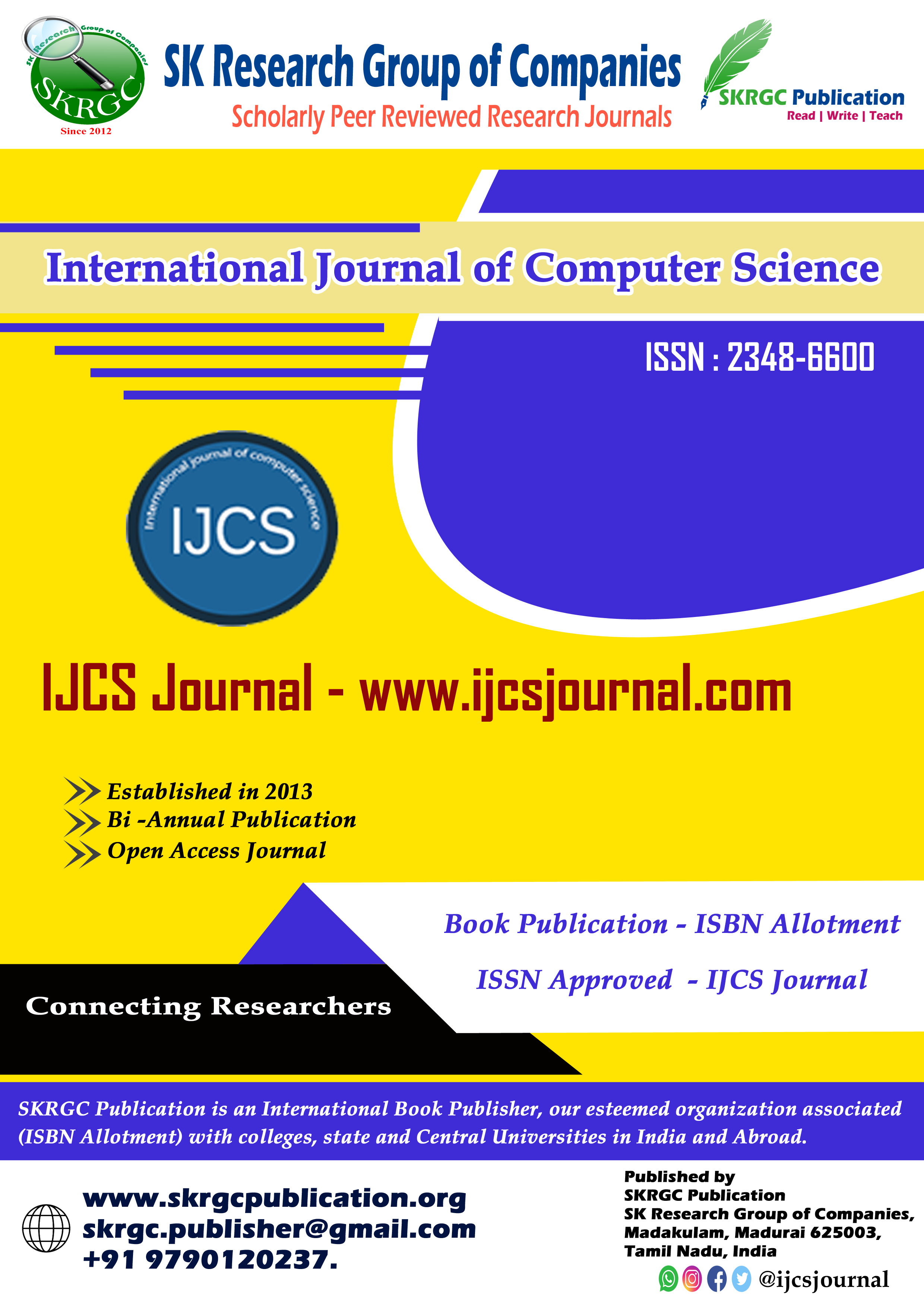Online Transaction Fraud Detection using Back Logging
International Journal of Computer Science (IJCS) Published by SK Research Group of Companies (SKRGC).
Download this PDF format
Abstract
Due to a rapid advancement in the electronic commerce technology, the use of credit cards has dramatically increased. As credit card becomes the most popular mode of payment for both online as well as regular purchase, cases of fraud associated with it are also rising. In this paper, we model the sequence of operations in credit card transaction processing using a Back Logging (BL) and show how it can be used for the detection of frauds. An BL is initially trained with the normal behaviour of a cardholder. If an incoming credit card transaction is not accepted by the trained BL with sufficiently high probability, it is considered to be fraudulent. At the same time, we try to ensure that genuine transactions are not rejected. We present detailed experimental results to show the effectiveness of our approach and compare it with other techniques available in the literature. In this we converted the transaction on credit card in series and trained the card initially with the normal usage of the card holder. If the usage is unnatural the transaction automatically blocked. If it is authentic the transaction process occurs normally. Here we are introducing a project for the online transaction fraud detection using Back Logging. It is done on the basis of the spending profile of the card holder. The usual spending of the cardholder is being checked by the FDS (Fraud Detection system) in the bank. The system checks all the spending of the user. When it turns unusual the method blocks the transaction on the card. And it alerts the bank. It occurs automatically. It doesn’t need any man power.
References
[1] Iwasokun GB, Omomule TG, Akinyede RO. Encryption and tokenization-based system for credit card information security. Int J Cyber Sec Digital Forensics. 2018;7(3):283–93.
[2] Burkov A. The hundred-page machine learning book. 2019;1:3–5.
[3] Maniraj SP, Saini A, Ahmed S, Sarkar D. Credit card fraud detection using machine learning and data science. Int J Eng Res 2019; 8(09).
[4] Dornadula VN, Geetha S. Credit card fraud detection using machine learning algorithms. Proc Comput Sci. 2019;165:631–41.
[5] Thennakoon, Anuruddha, et al. Real-time credit card fraud detection using machine learning. In: 2019 9th international conference on cloud computing, data science & engineering (Confluence). IEEE; 2019.
[6] Robles-Velasco A, Cortés P, Muñuzuri J, Onieva L. Prediction of pipe failures in water supply networks using logistic regression and support vector classification. Reliab Eng Syst Saf. 2020;196:106754.
[7] Liang J, Qin Z, Xiao S, Ou L, Lin X. Efficient and secure decision tree classification for cloud-assisted
[8] Ghiasi MM, Zendehboudi S. Application of decision tree-based ensemble learning in the classification of breast cancer. Comput in Biology and Medicine. 2021;128:104089.
[9] Lingjun H, Levine RA, Fan J, Beemer J, Stronach J. Random forest as a predictive analytics alternative to regression in institutional research. Pract Assess Res Eval. 2020;23(1):1.
[10] Breiman L. Random forests. Mach Learn. 2001;45(1):5–32
Keywords
Fraud Detection system, Back Logging, Electronic Commerce.

